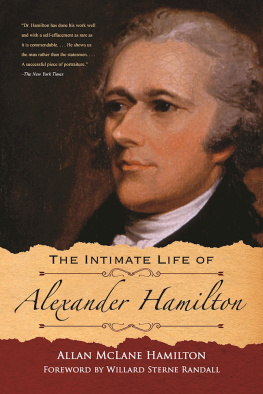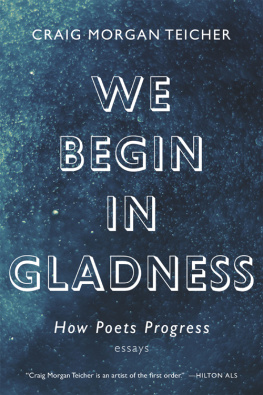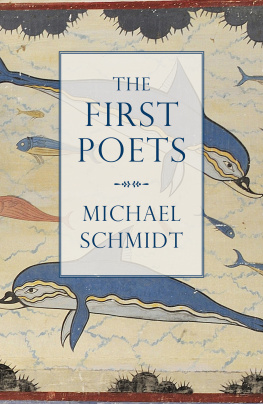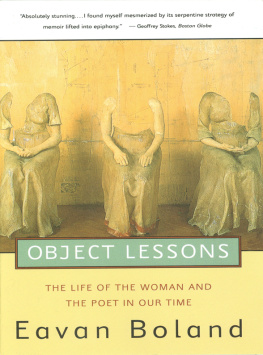
The author and publisher have provided this e-book to you for your personal use only. You may not make this e-book publicly available in any way. Copyright infringement is against the law. If you believe the copy of this e-book you are reading infringes on the authors copyright, please notify the publisher at: us.macmillanusa.com/piracy.
CONTENTS
IN MEMORY OF BOPR , 19962011
SWEETEST BOY ,
SWEETEST SPIRIT OF THE AIR :
For every house is incomplete without him and a blessing is lacking in the spirit.
Oh! there are spirits of the air.
(PERCY BYSSHE SHELLEY)
I cannot paint / What then I was.
(WILLIAM WORDSWORTH, TINTERN ABBEY)
What I am saying now isnt said by me.
(OSIP MANDELSTAM, HE WHO FINDS A HORSESHOE)
Let me indulge the American habit of quotation:
(EZRA POUND, LETTER TO WILLIAM CARLOS WILLIAMS)
PROEM IN THE FORM OF A Q&A
How long have you written poetry?
Since thentis Centuriesand yet
Feels shorter than the Day
I first surmised the Horses Heads
Were toward Eternity
Why do you read poetry?
I caught this morning mornings minion.
Why do you read poetry?
Batter my heart.
Why do you read poetry?
I have wasted my life.
Why do you read poetry?
Milton! Thou shouldst be living at this hour!
What is the first poem you remember?
She sailed away one sunny summer day
on the back of a crocodile
And then?
Twas brillig, and the slithy toves
Did gyre and gimble in the wabe.
And then?
Anyone lived in a pretty how town
And then?
The great light cage has broken up in the air,
freeing, I think, about a million birds.
And then?
I sang in my chains like the sea.
Why poetry?
Where there is personal liking we go.
Why poetry?
Poetry sheds no tears such as Angels weep, but natural and human tears; she can boast of no celestial Ichor that distinguishes her vital juices from those of prose; the same human blood circulates through the veins of them both.
Why poetry?
Poetry is connate with the origin of man.
Why poetry?
Of all things of thought, poetry is closest to thought.
Why poetry?
The immortal Mind craves objects that endure.
Why poetry?
The poem is sad because it wants to be yours, and cannot.
Why poetry?
Weve lived quietly among the stars, knowing money isnt what matters.
Why poetry?
A day is not a day of mind
Until all lifetime is repaired despair.
Why poetry?
since
our knowledge is historical, flowing, and flown.
Why poetry?
A need for poetry.
Why do you write poetry?
I am a native in this world
And think in it as a native thinks.
Why do you write poetry?
Because existence is willy-nilly thrust into our hands, our fate is to make somethingif nothing else, the shape cut by the arc of our lives.
Why do you write poetry?
Odi et amo.
Why do you write poetry?
My purpose here is to advance into
the sense of the weather.
Why do you write poetry?
I sing to use the Waiting.
MY CHAUCER / KANKEDORT
I. M. JULIA BRIGGS
Was Troilus nought in a kankedort?
Chaucer, Troilus and Criseyde, II. 1752
Isolate, peculiar, rare, obsolete, it surfaces in the language only once, according to the latest edition of the Oxford English Dictionary: in Chaucers Troilus and Criseyde. Kankedort: speculatively defined as a difficult situation by Larry D. Benson, editor of The Riverside Chaucer; further glossed in the OED as a state of suspense; a critical position; an awkward affair.
A lonely word whose definition can be inferred only from its single, immediate context in Chaucers poem: Troilus awaits his beloved, Criseyde, who is being led by her uncle Pandarus to Troiluss room for their first love-meeting. Pandaruswho throughout the poem behaves like unto his name, serving as pander, go-between, near-pimp of Criseyde. Here, at the very end of Book II, the lovesick Troilus awaits his long-sought love and nervously considers how to declare his passion:
And was the firste tyme he shulde hire preye
Of love; O mighty God, what shal he seye?
(II. 175657)
Was Troilus nought in a kankedort? Was he not at a difficult, critical moment, that abyssal moment before erotic disclosure? Was he not worrying about the right words to say, the right words to elicit the right response, the lovers answering love, the body perhaps then pledged, then possessed? Its only humans as far as we know who can use words to get bodies together. The word as the body evanesced in a breath, a breath bearing intelligible sound. What shal he seye? What does he say?
Lo, the alderfirste word that hym asterte
Was, twyes, Mercy, mercy, swete herte!
(III. 9798)
Language is fossil poetry, Emerson declared in his essay The Poet (1844); some poetry becomes the amber in which the delicate fossils of a language are embedded. Was Troilus nought in a kankedort?
A dream of a common language, Adrienne Rich imagined, a difficult dream. Kankedort falls out of this dream. Words become obsolete, languages die, texts the tombs of the dead only some learn to reanimate. Kankedort: A hapax legomenon, to invoke a technical term of the Greek grammarians, themselves interested especially in those words that appeared only once in the Homeric corpus. Kankedort a hapax in Chaucers Troilus and Criseyde but also in the English language itself. The OED marks kankedort as not only rare but obsolete.
You find yourself in a difficult situation.
Youre asked to choose a word that has meant something to you, an invitation that lends itself to thoughts of the exceptional word, the unusual word, of a word that lodged itself like a mystery, a word that gathered around it associations so personal and ramifying that the word itself becomes the sign of an epoch not only in Troiluss life but in yours. There are words that the dictionary deems rare, obsolete, slang, obscene: lexicographers can debate such classifications and have. There are words that are rare for the general and words that are rare for you, words that are obsolete in the language and those that are obsolete for you: Christian; fuck-wad; wife. That your mind runs this way, running aground on the reef of kankedort, of dulcarnoun ( Troilus and Criseyde, III.931), of spatchcocked, onomastics, and other such shoals, shows your tendency toward verbal fetishism, or more precisely lexical fetishism: one could ponder the depths of the commonest wordsthing, or think (as Wordsworth does, incessantly); love, kind (see Shakespeare); the overwhelming power encoded in the humblest parts of speech, prepositions or articles, through which every basic relation shines forth. On. With. Together. Toward. Between. The the (Wallace Stevens).
To focus on the word is to focus on a part of speech; yet no one I know ever spontaneously spoke the word kankedort. Perhaps only Chaucer himself ever spoke the word kankedort. He was charting his way through one of the four major dialects then jostling for the privilege of ascending into a more standard Englysshe: Chaucers Englysshe will beat out John Gowers, and that of the Ancrene Wisse, and other fourteenth-century variants then available on the island of Britain. If you concentrate, you can almost read Chaucer without a gloss, even if contemporary Englishwhatever that might beis your only language.
what shal he seye?
What should I say of kankedort other than the word constellates a time, a time of reading, a time of slow dawning and changing, of delicate then desperate realizing over many months and belatedly that I was in a kankedort; I was sick with love; I was in love with another; I knew not what to do; I did almost nothing; I found myself at dulcarnoun, at my wittes end; I almost did something bold; I didnt; then I did; then the plot changed, or its true drift was revealedif only in retrospect.
Next page









